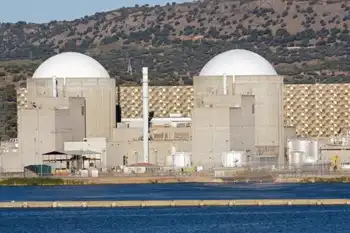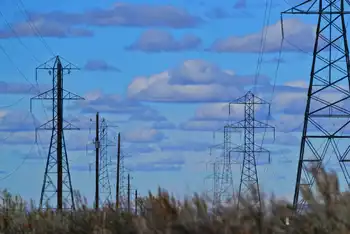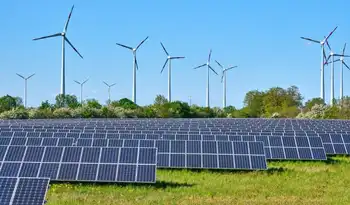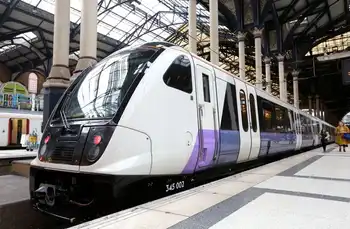B.C. Liberals rule out rate hike
VICTORIA, BRITISH COLUMBIA - B.C.'s Energy Minister is flatly ruling out BC Hydro's controversial proposed rate hikes of 50 per cent over five years and has convened a panel of three senior civil servants to conduct a wide-ranging review of hydro.
After announcing the review, Rich Coleman conceded some rate hikes are inevitable, but promised something short of the 50 per cent, which newly minted Premier Christy Clark has suggested could be hard on B.C. families.
The hydro increases represent a political challenge for the B.C. Liberals who have embraced the "families first" policy approach of Ms. Clark, who said that a fall election to secure her own mandate is among the options she is considering.
"I don't think anybody should have any illusions that, with inflation and cost upgrades that you may need to your system that, at some point in time, there's not going to be some need for rate hikes," Mr. Coleman said in an interview.
"Our concern is the size of the rate hikes and can they be mitigated with better management of some of the pressures we're facing."
Late last month, the power regulator — the B.C. Utilities Commission — suspended an interim rate hike of about 10 per cent, and Mr. Coleman made it clear that the larger hikes won't proceed, suggesting the government can find efficiencies in the organization without compromising infrastructure needs. The panelists conducting the review are John Dyble, deputy minister to the premier Peter Milburn, deputy minister of finance and Cheryl Wenezenki-Yolland, associate deputy minister of the Environmental Assessment Office.
They are to take a wide-ranging look at the operations of BC Hydro, including financial performance, reliability of forecasting systems and cost-containment, and report back to Mr. Coleman and Ms. Clark by June.
Their stated mandate includes coming up with recommendations on rates.
John Horgan, the long-time energy critic for the opposition New Democrats before entering the race to lead the party, said it was odd that the government was relying on three people with limited or no expertise in the area of study.
"Three individuals who don't understand electricity are probably not the best people to look at a review of electricity policy. That seems pretty transparent to me," Mr. Horgan told reporters.
But Mr. Coleman rejected the criticisms, noting all of the panelists have handled tough assignments for the government in the past in such areas as health and transportation.
"It's not about whether they know necessarily how much a megawatt hour is running down a power line as much as it is can they look at the reliability of forecasting internal systems, capital management, managing money for maximum value for return, and they can do that, and that's where I have my confidence."
Mr. Horgan said the whole exercise is a political effort to dampen the controversy around the rates for the government.
"I don't know how you can claim to be family focused and increase costs for families by 50 per cent over three years," he said. "It's about deflecting attention away from the real problem, which is that they don't have a plan for energy."
Mr. Coleman said he expects the review will locate efficiencies and savings in hydro, without compromising infrastructure, which will be passed on to the public.
"There's an ability to bring some of these rates down and still sustain the company at a level it should be and that's just my early blush. I think these three folks will look at everything in such detail, they will come back with some pretty strong recommendations."
Mr. Coleman rejected the suggestion that the effort was linked to an early election, but that it was tied into the new premier's families-first policy agenda.
"It's prudent on us to make sure we go in and have a hard look at this thing and find out every saving we can possibly find to keep the rates as affordable as possible for families in British Columbia."
Hydro Chairman and CEO Dave Cobb welcomed the "fresh perspective" of the review, which he said will help keep BC Hydro rates amongst the lowest in North America.
He noted the last such review was done 10 years ago.
"We are absolutely committed to finding the right balance between regenerating our aging electricity system, which is the backbone of B.C.'s economy, and keeping rates as low as possible for families and businesses."
Related News

Alberta creates fund to help communities hit by coal phase-out
EDMONTON - The Coal Community Transition Fund is open to municipalities and First Nations affected as Alberta phases out coal-fired electricity by 2030 to focus on renewables and natural gas.
Economic Development Minister Deron Bilous says the government wants to ensure these communities thrive through the transition
“Residents in our communities have concerns about the transition away from coal,” Rod Shaigec, mayor of Parkland County, said.
“They also have ideas on how we can mitigate the impacts on workers and diversify our economy to create new employment opportunities for affected workers. We are working to address those concerns and support their ideas. This…




